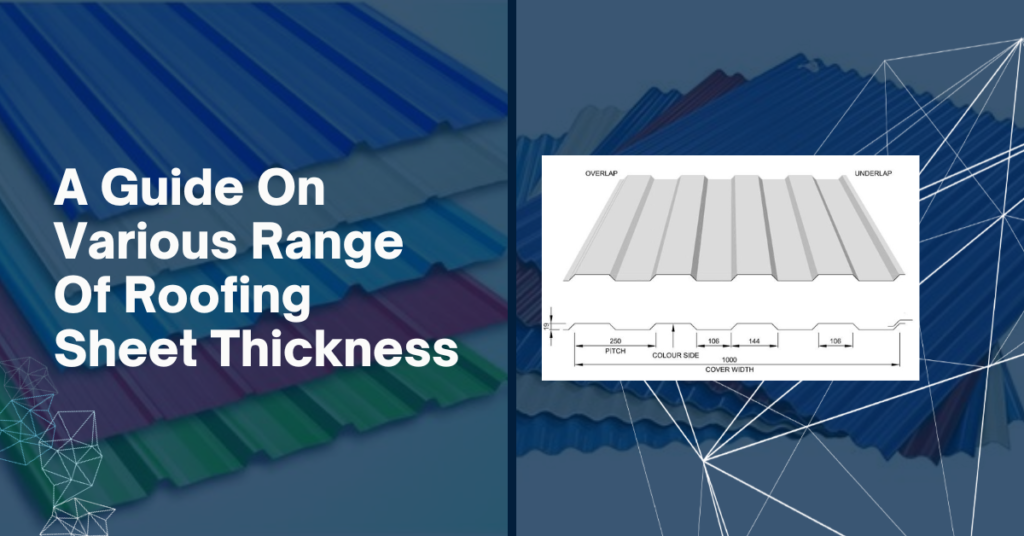Roofing sheets certainly play a crucial role in everyone’s life. So, one of the significant factors to be considered while choosing your suitable roofing material from the right roofing sheet manufacturers in Chennai is the thickness. This thickness impacts the roofing sheet’s performance, durability, and adaptability for various purposes. Hence, this blog will serve as a comprehensive guide on various ranges of roofing sheet thickness.
Understanding Roofing Sheet Thickness
Roofing sheets are available in various thicknesses, typically measured in gauge or mils. The roofing sheets are measured in Gauge units with the lower range of numbers representing higher thickness. For instance, a roofing sheet of 24-gauge is more robust and thicker than a roofing sheet of 29-gauge.
The Importance of Roofing Sheet Thickness
Roofing sheet thickness plays a significant role in determining your roof’s overall quality and performance. Here are some key reasons why it matters:
Durability:
It is to be noted that thicker roofing sheets are more resistant and durable to various wear and tear conditions. They can withstand harsh weather conditions and last longer, reducing the need for frequent replacements.
Strength:
Thicker sheets are generally more robust and can support heavier loads. It is essential in areas prone to heavy snowfall or where rooftop equipment needs to be installed.
Insulation:
Roofing sheets with adequate thickness be it a polycarbonate or steel roofing sheets, can provide better insulation, helping to regulate indoor temperatures and reduce energy consumption.
Common Roofing Sheet Thickness Ranges:
Roofing sheet thickness is typically measured in gauges, with a lower gauge indicating a thicker sheet. Here are some standard roofing sheet thickness ranges:
26-Gauge:
A 26-gauge roofing sheet is extremely thin and is used for residential roofing purposes where cost-efficiency plays a crucial role. However, these roofing sheets are less durable than the thicker ones even though they are one of the affordable and lightweight options.
24-Gauge:
These roofing sheets are slightly thicker than 26-gauge roofing sheets and are one of the popular choices for commercial and residential roofing. 26-Gauge roofing sheets are an ideal option for durability and cost worth.
22-Gauge:
These sheets are thicker and more robust, making them suitable for heavy rainfall or snowfall areas. They are commonly used in commercial and industrial roofing applications.
20-Gauge & Thicker:
Roofing sheets with a gauge of 20 or lower are considered heavy-duty. They are ideal for regions with extreme weather conditions and industrial buildings requiring maximum strength and durability.
Maintenance & Longevity
Proper maintenance is essential for ensuring the longevity of your roofing sheets. Regular inspections, cleaning, and repairs are necessary to promptly detect and address any issues. Neglecting maintenance can reduce the lifespan of even the thickest roofing sheets.
Choosing the right roofing sheet thickness is a crucial decision that can significantly impact the longevity and performance of your roof. When choosing, consider your budget, climate, building type, and local regulations. Often, thicker roofing sheets offer durability and strength but strike a balance between quality and cost. Hence, you can make the right choice by understanding the various thicknesses of these roofing sheets and with the help of Crayon Roofing, one of the best C purlin manufacturers, ensuring successful project completion.

